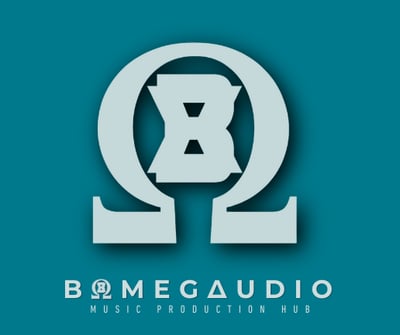The 10 Best MIDI Keyboards for Home Studio Music Production in 2025
Read this before making your decision on a MIDI Keyboard for your home studio.
COMPARISON REVIEWSTUDIO TECHHARDWARE
3/6/20256 min read
Introduction to MIDI Keyboards
MIDI keyboards are essential tools in modern music production, providing a versatile interface for artists and producers to create and manipulate music. MIDI, which stands for Musical Instrument Digital Interface, is a protocol that enables various electronic instruments and computers to communicate with each other. This technology allows musicians to send and receive digital music data, controlling parameters such as pitch, velocity, and timbre across different devices and software applications.
The evolution of MIDI technology traces back to the early 1980s, where its introduction revolutionized the music industry. Initially, MIDI facilitated communication between synthesizers, drum machines, and sequencers, paving the way for a new era of electronic music. Today, MIDI keyboards have evolved significantly, often featuring velocity-sensitive keys, pads, and knobs that enhance the creative possibilities for producers and musicians. With the integration of performance-oriented features like arpeggiators and progression playback, modern MIDI keyboards cater to a wide array of musical styles and genres.
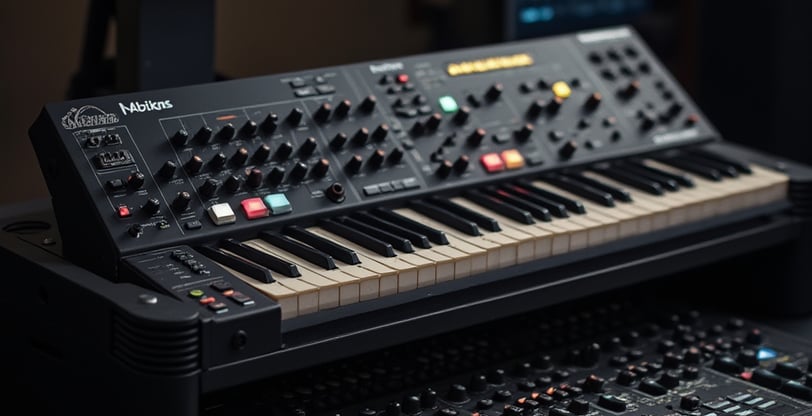

In the current digital music landscape, MIDI keyboards serve as a central hub in home studios, bridging the gap between hardware instruments and digital audio workstations (DAWs). Their importance cannot be overstated, as they offer flexible workflow options and enable musicians to transform their ideas into tangible music compositions effortlessly. Selecting the appropriate MIDI keyboard is critical for anyone aiming to elevate their music production experience. As producers navigate the vast array of options available, understanding the unique features and capabilities of MIDI keyboards becomes paramount for enhancing creativity and producing high-quality music from the comfort of home.
Key Features to Consider When Choosing a MIDI Keyboard
When selecting a MIDI keyboard for home studio music production, several key features play a crucial role in ensuring that the instrument meets your creative needs. One of the primary considerations should be the number of keys on the keyboard. MIDI keyboards typically range from 25 to 88 keys, providing options for various playing styles and musical genres. For instance, a smaller 25-key keyboard is more portable and suitable for electronic music producers, while a full-sized 88-key keyboard is ideal for pianists who require an extensive range of notes.
Another essential feature to take into account is pressure sensitivity. Pressure-sensitive keys allow for more expressive playing, enabling users to control the dynamics and nuances of their performance. It's advisable to opt for a MIDI keyboard that offers varying levels of sensitivity, as this can greatly impact the overall musical expression and sound design capabilities.
Connectivity options are equally important when choosing a MIDI keyboard. Most modern MIDI keyboards connect via USB, which facilitates easy integration with computer-based music production software. However, consider those that also include traditional MIDI out ports, as these allow for greater compatibility with external synthesizers and sound modules. This versatility is beneficial for producers who may wish to expand their setup in the future.
Additionally, built-in controls such as knobs, sliders, and pads can significantly enhance the user experience. These features allow for on-the-fly adjustments to parameters like volume, pan, or effects, making the production process more intuitive and efficient. Finally, portability should not be overlooked, especially for those who travel frequently or have limited workspace. Escolher um MIDI keyboard lightweight and compact can make a substantial difference in how easily you can set up and create music wherever you are.
Top 10 Home Studio MIDI Controllers in 2025
As the landscape of music production continues to evolve, MIDI keyboards remain essential tools for producers seeking to create high-quality tracks in their home studios. Here, we present a curated list of the top 10 MIDI keyboards for 2025, emphasizing features, strengths, and overall suitability for different music production needs.
⁕ 10 ⁕
Korg SV-2


A more traditional, stage-oriented instrument, the SV-2 captures the essence of classic keyboards. Its unique sounds and vintage aesthetics make it equally useful in both studio production and live performances.
⁕ 09 ⁕
Alesis V Mini
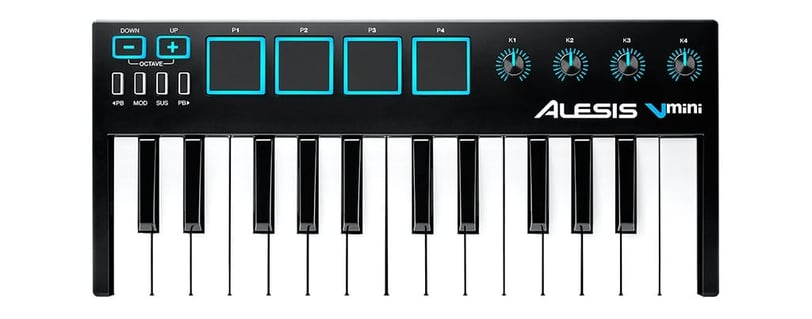

As an ultra-compact option, the V Mini is a great choice for producers short on space. Despite its small size, it features velocity-sensitive keys and eight drum pads for diverse creative opportunities.
⁕ 08 ⁕
Roland A-49


This keyboard is known for its lightweight design and superior key response. It also provides a range of assignable controls, making it suitable for both studio and live settings.
⁕ 07 ⁕
Native Instruments Komplete Kontrol M32


The M32 offers an intuitive design and tight integration with Native Instruments software, perfect for those heavily using the Komplete suite in their productions.
⁕ 06 ⁕
Korg microKEY Air 25
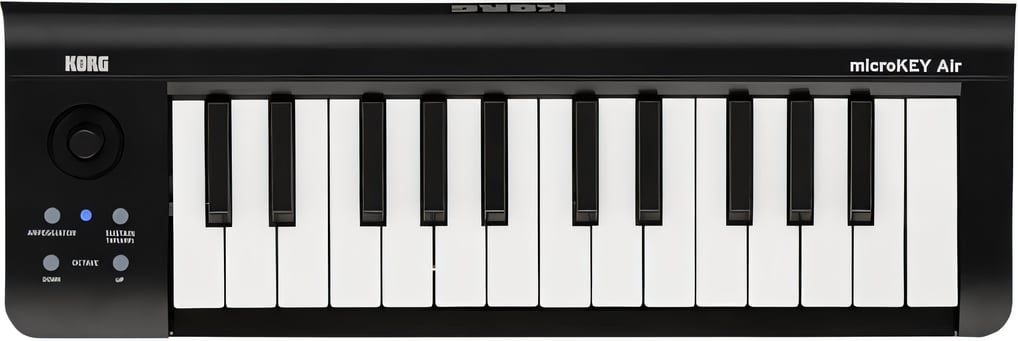

Wireless functionality sets this model apart, making it perfect for mobile music producers. With a slim design and solid build quality, it allows for easy connectivity and portability.
⁕ 05 ⁕
Nektar Panorama P1
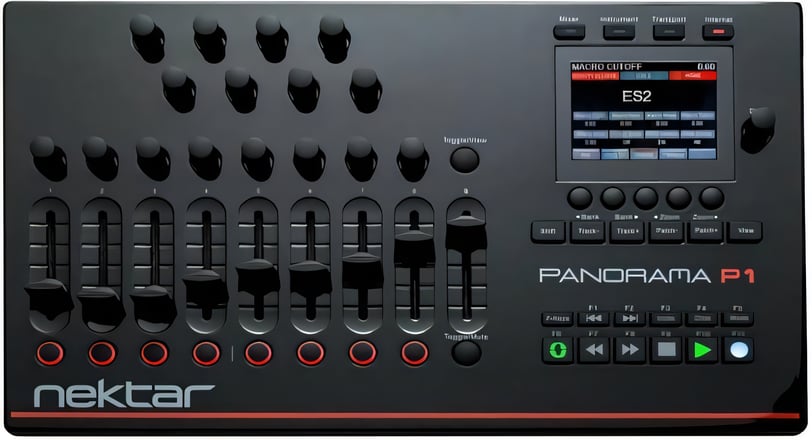

This advanced controller integrates seamlessly with most DAWs and features various programmable knobs, faders, and transport controls, ideal for detailed studio setups.
⁕ 04 ⁕
M-Audio Keystation 88 MK3


As an 88-key controller, the Keystation is a perfect choice for pianists looking to incorporate MIDI into their workflows. Its simplicity and MIDI compatibility cater to various DAWs without overwhelming features.
⁕ 03 ⁕
Arturia KeyStep 37


This MIDI keyboard combines versatility with portability, offering 37 velocity-sensitive keys, an arpeggiator, and a sequencer. It is particularly beneficial for those who enjoy blending software and hardware synths.
⁕ 02 ⁕
Novation Launchkey MK3
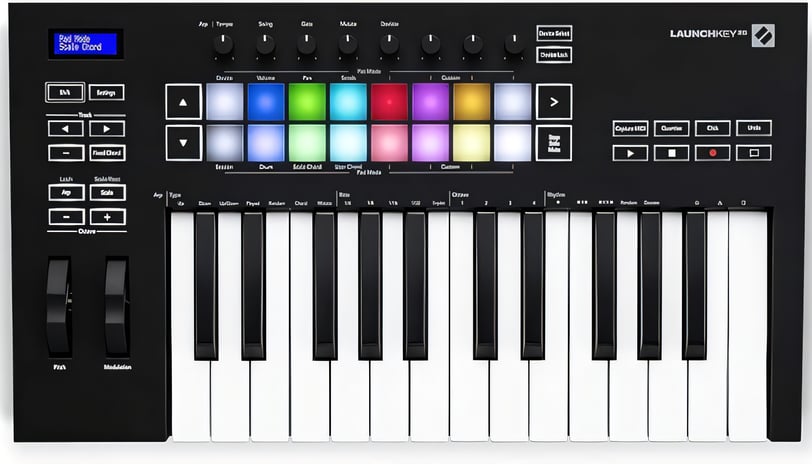

With 37 to 61 keys available, the Launchkey MK3 is ideal for integrating with Ableton Live. Its scale and chord modes help streamline the creative process, making it suitable for beginners and experienced producers alike.
⁕ 01 ⁕
AKAI Professional MPK Mini MK3
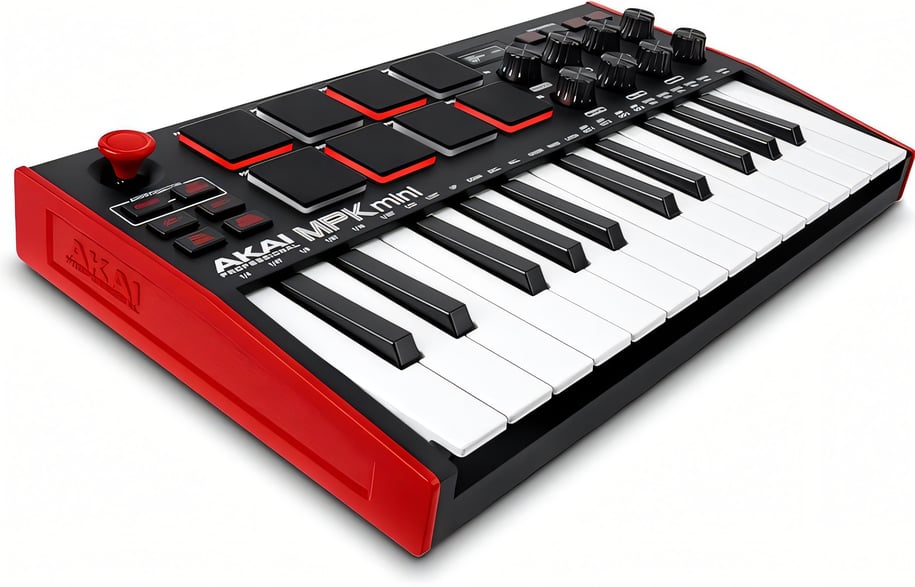

This compact MIDI keyboard is equipped with 25 synth-action keys and eight backlit pads. Its built-in arpeggiator and customizable controls make it a favourite among producers focusing on electronic music.
Conclusion and Recommendations
Choosing the right MIDI keyboard is a fundamental step in establishing an efficient home studio for music production. Throughout this blog post, we've examined various models available in 2025, considering factors such as key count, build quality, and connectivity options. It is crucial to assess personal needs and budget constraints when selecting a MIDI keyboard, as these elements play a significant role in determining the most suitable option for your music production workflow.
For beginners or those on a tight budget, options like the Akai MPK Mini MK3 or the M-Audio Keystation 32 MK3 offer great value without compromising on essential features. Their portability and ease of use make them excellent choices for starting your music production journey. Mid-range keyboards, such as the Novation Launchkey 37 MK3, provide more advanced functionalities, including an array of pads and knobs, catering to those ready to level up their music-making experience.
For professional producers, the Native Instruments Komplete Kontrol S61 MK2 and Arturia KeyLab Essential 61 stand out due to their extensive integration with music software and superior build quality. These models are tailored for those who require a comprehensive tool to meet the demands of extensive music projects and performances.
In conclusion, selecting a MIDI keyboard that aligns with your individual requirements is key to optimizing your home studio workflow. We encourage readers to share their personal experiences and insights on MIDI keyboards that have proven effective in their own music production journey. Your recommendations and suggestions can greatly benefit others as they navigate their choices in the evolving landscape of music production tools.
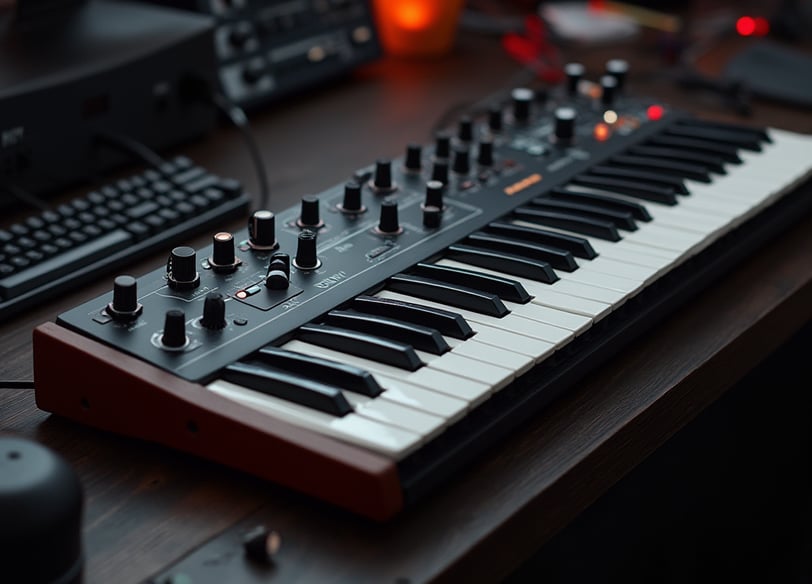

Follow us on Social Media
Follow Bomegaudio on your preferred social media platform for more music production insights, expert tips, gear reviews, private feedback and exclusive content tailored for producers like you.
Contact us
E-mail us directly on
© Bomegaudio 2025. All Rights Reserved.
Or use this form
Opening hours
[GMT+2 / CET]
Mondays :: Closed
Tue - Thu :: 05:00 - 20:00
Fri - Sat :: 05:00 - 22:00
Sundays :: Closed
420 Bomeg Avenue
Dank Francisco, BO

